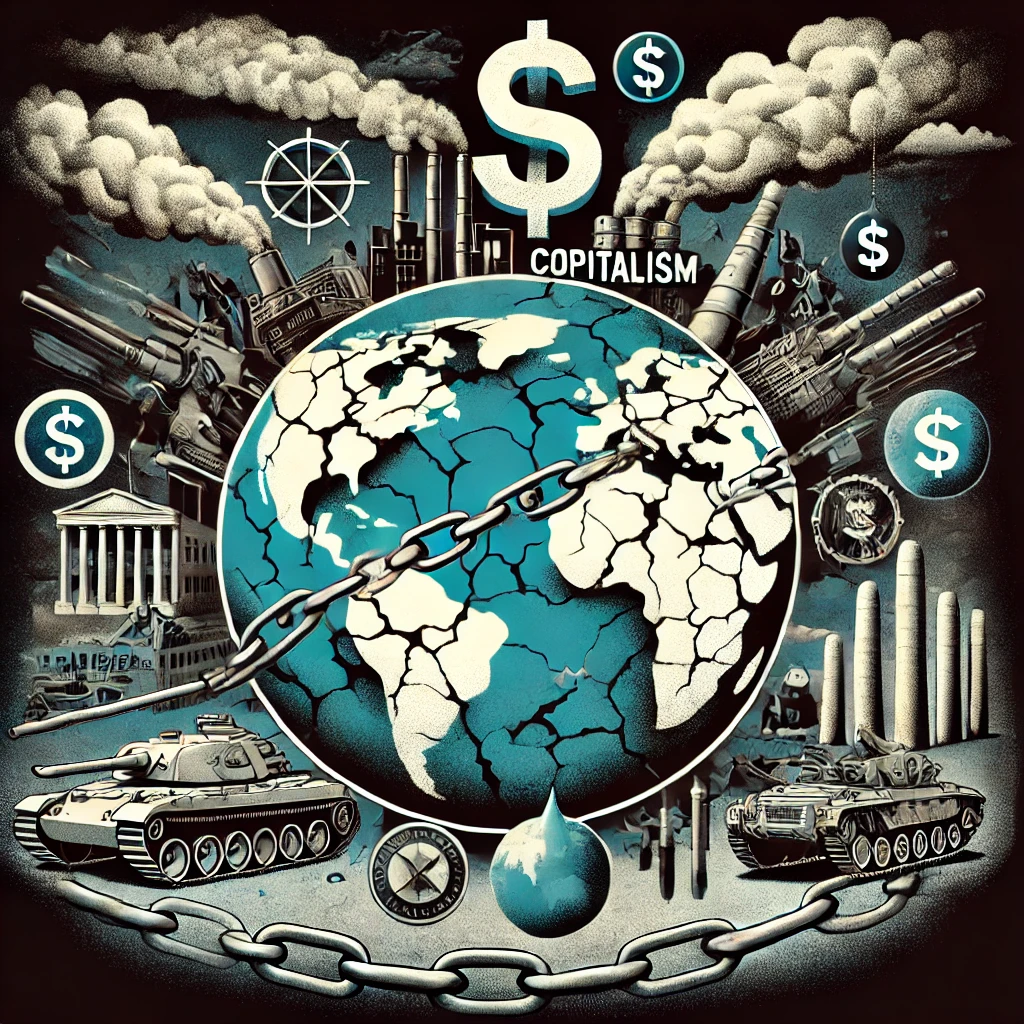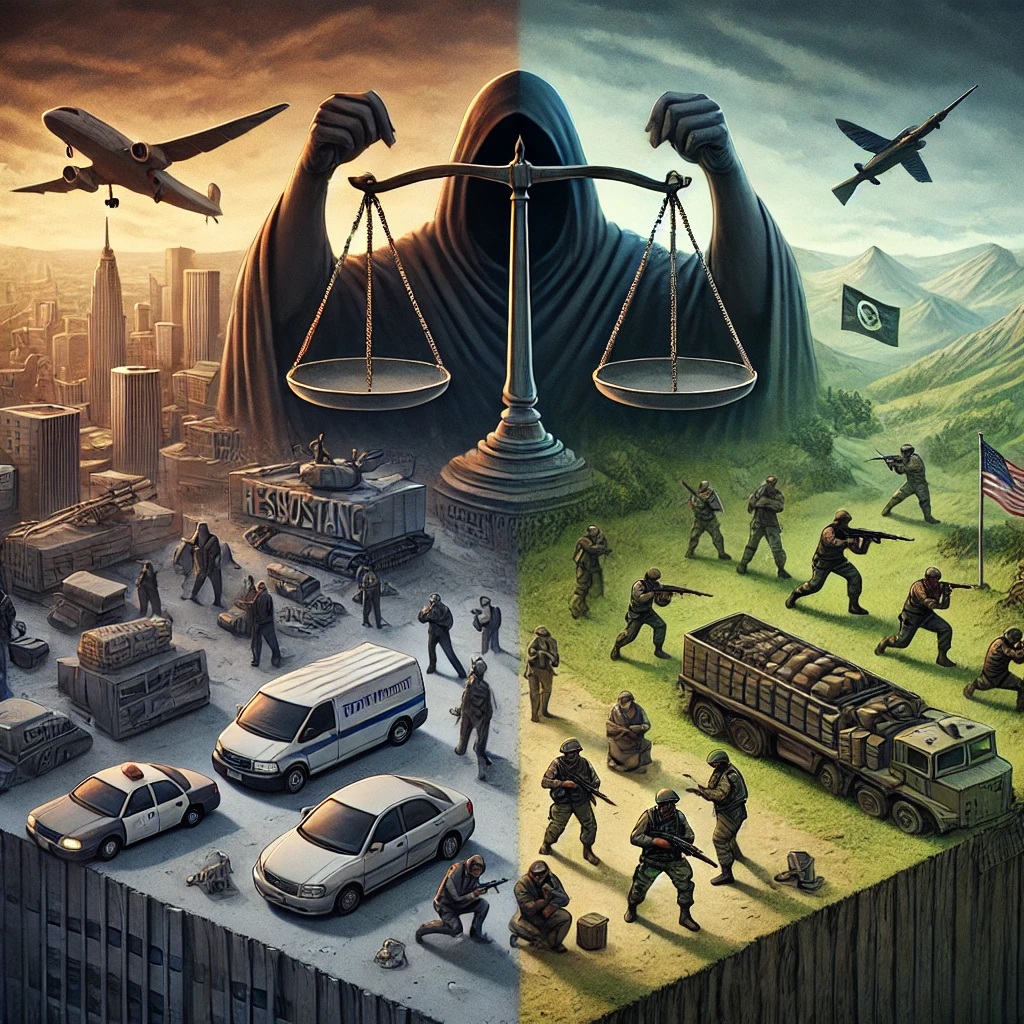Let’s begin with some definitions…
- Climate Crisis: The global environmental emergency caused by human activity, primarily the emission of greenhouse gases, leading to rising temperatures, extreme weather, loss of biodiversity, and other ecological disruptions.
- Capitalism: An economic system characterised by private ownership of the means of production, profit-driven markets, and competition, often leading to economic inequality and resource exploitation.
- Colonialism: The practice of acquiring and controlling territories, exploiting their resources, and subjugating their populations, often justified through ideologies of racial or cultural superiority.
- Military-Industrial Complex: The network of relationships between governments, armed forces, and private arms manufacturers, which sustains and profits from the production and sale of military technology and weaponry.
Links Between Them:
The climate crisis cannot be understood in isolation from the systems that have shaped modern societies. At its core, capitalism drives resource extraction and consumption at unsustainable rates. The profit motive prioritises short-term economic gain over long-term ecological sustainability, incentivising practices like deforestation, fossil fuel extraction, and industrial agriculture, which are major contributors to the climate crisis.
Colonialism laid the foundation for many of these destructive patterns. Historical colonial empires extracted resources from colonised territories, exploiting both the land and the labour of indigenous populations. These practices devastated ecosystems, entrenched economic disparities, and created a global system of resource flows that still privileges wealthy, industrialised nations at the expense of the Global South.
The military-industrial complex is a significant player in this dynamic. Militarism supports and defends resource extraction, often through the suppression of environmental activists, indigenous groups, or nations resisting exploitation. Moreover, the military itself is a major polluter. It consumes vast amounts of fossil fuels and generates significant emissions through its operations, manufacturing, and infrastructure.
These systems are mutually reinforcing. Capitalism’s drive for growth relies on cheap resources often secured through neo-colonial practices, while the military-industrial complex acts as an enforcer of this global order. Meanwhile, the climate crisis disproportionately affects marginalised communities, who are least responsible for causing it. This perpetuates cycles of inequality, resource conflict, and environmental degradation, with devastating social and ecological consequences.


